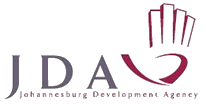JOHANNESBURG has the potential to be the envy of other cities, but basics need to be sorted out first to maximise that potential, a large contingent of stakeholders in the tourism sector heard at a GDS2040 outreach gathering.
And the city has the appropriate formula – adequate infrastructure; antique, chic and contemporary buildings; old and new cities within the city; a vibrant tourism, arts and culture sector; and a rich tapestry of history and heritage, yet this was not used enough as leverage to market the city and expand its growth, a participant noted.
The gathering, on Thursday, 18 August in the Joburg Theatre Complex, was called to brief stakeholders in the tourism sector about how they can participate in the process of effecting change in the way the city is administered, ahead of the Economic Growth Week, scheduled to run from 26 August to 30 September.
Most attendees were eager to comment on the growth of the sector and the economy, and a range of views and ideas were mooted. However, they were cautioned not to let it all out at that gathering, as it was only a briefing ahead of GDS2040 week eight, which will deal extensively with economic growth and development.
A travel and tour operation owner said tourism in Alexandra needed rebranding and its history and heritage needed to be properly preserved. Another said that to eradicate the socio-economic disparities between the township and its neighbour, the affluent Sandton, the City needed to listen to people at the grass roots level.
Other participants suggested the City involve international tourists in the GDS outreach, so as to gauge global perceptions about its interventions. A variety of views were raised, ranging from ways of improving Joburg’s economic growth path to ones about dovetailing liveability with tourism and job creation.
Soweto
A tour operator from Soweto said most tourists who visited her establishment were keen on corporate social investment, yet there was no provision for it. She advised the City to run a pilot project and if successful, implement and support it. There were vacant school buildings in Soweto which could be used to accommodate homeless people, she added.
Other views were that tourism routes needed to be extended to cover the whole metro and that the sector needed to collaborate in decreasing tourism prices and packages, as this was affecting tourists adversely. The City should also consider developing non-motorised forms of transport to ease congestion on roads and provide alternatives to public transport.
There were concerns that Joburg residents were not taking enough pride in their city through participating in its projects and programmes, hence development had dawdled.
Others concurred that Rea Vaya should be expanded to cover the entire southern quadrant of the metro and that tourism information kiosks should be erected in community centres to increase awareness of tourism products and inspire youngsters to see tourism as a career option.
Other ideas were that the City should provide land in Alex where locally made artefacts could be sold.
Lindiwe Kwele, the head of the Johannesburg Tourism Company (JTC), who is spearheading the civic outreach programme, said each contribution and suggestion was invaluable in helping to chart the growth and development path of Johannesburg for the next 30 years. She asked stakeholders to jump on board and help the City work for the illiterate, black and white, and the sophisticated.
Economic balance
Although the tourism sector was about exposing the city and growing its economy, she said, it was also cognisant of Joburg’s social dynamics. Because Joburg was a city of contrasts, there needed to be a way of sharing benefits accrued in affluent places with the more deprived ones.
Tourism was a catalyst for sustainable economic growth yet it should not be isolated, she added, as it was an inclusive part of the City’s economic growth strategy. “We have to find mechanisms in which we can evolve. We need to be innovative and remain relevant and sustainable as a city.”
Urging the sector to get involved, Kwele said the outreach process was about generating a sense of civic pride in Joburg citizens and improving investor confidence in order to boost the city’s economy.
According to the City, the GDS outreach programme was not a public relations exercise and all comments made would be taken into consideration, after having gone through a content co-ordinating committee, which would revise all suggestions raised and reflect everything in the final GDS.
It said residents who had novel ideas about how to grow its economy to be more labour absorbing should come on board, as many ideas were being sought to address common challenges.
Discussion on the City’s Growth and Development Strategy was being held in each of nine themed weeks. Topical issues on the agenda included sustaining natural and scarce resources, encouraging healthy lifestyles, eradicating poverty, adopting an appropriate governance model and adopting a growing and inclusive economy.
Economic Growth Week would coincide with Tourism Month and Joburg Tourism’s spring campaign, Kwele said.
Through the GDS outreach programme, the City wants public input on how to address urbanisation, economic development and job creation, service delivery, poverty eradication, urban renewal and regeneration, the impact of globalisation and climate change, the need for information technology and the bridging of the digital divide, and other related challenges.
Source: Joburg.org.za

